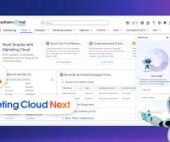Why opt for Snowflake over its competitors? What Makes Snowflake So Popular? One of Snowflake’s standout features is its multi-cloud capability, being accessible on major cloud platforms like Azure, AWS, and GCP. This is particularly advantageous for companies operating in multi-cloud environments, as they can seamlessly query Snowflake data from any of these platforms.
Snowflake distinguishes itself as a true self-managed service, eliminating the need for users to handle hardware selection, installation, configuration, or management. Moreover, there is minimal software involvement, with ongoing maintenance, management, upgrades, and tuning efficiently managed by Snowflake.
If your scaling requirements are primarily related to data warehousing, Snowflake’s data-centric scalability makes it a preferred choice. On the other hand, AWS might be more suitable for general infrastructure scalability across diverse cloud infrastructure components.
Organizations opt for Snowflake’s cloud-built data warehouse to achieve significant benefits. These include reducing query times from hours to seconds, providing universal access to all business users, handling structured and semi-structured data swiftly, and doing so more cost-effectively compared to other data analytics platforms.
Snowflake’s storage and compute separation enables seamless sharing of live data across business units, eliminating the need for data marts or maintaining multiple data copies. The flexibility to scale virtual warehouses based on specific needs, without concerns about underlying hardware, sets Snowflake apart. Additionally, its pricing model and central data repository contribute to enhanced flexibility, scalability, and cost-effectiveness. Furthermore, Snowflake allows users to share data with partners and customers, irrespective of region or cloud, fostering collaboration on a global scale.
If you would like learn more about Snowflake cloud-build data warehouse, contact Tectonic today.
🔔🔔 Follow us on LinkedIn 🔔🔔











